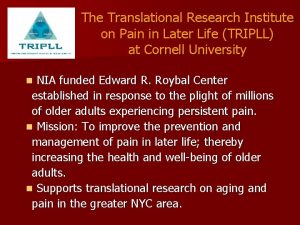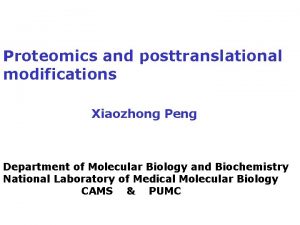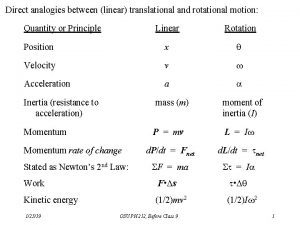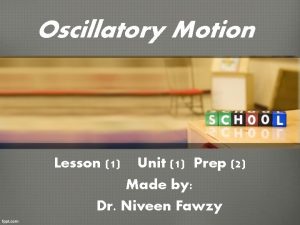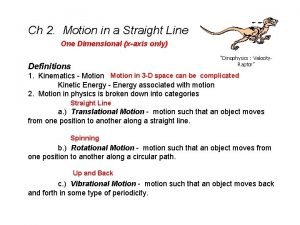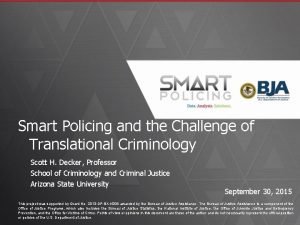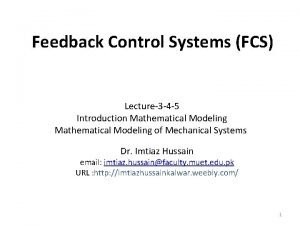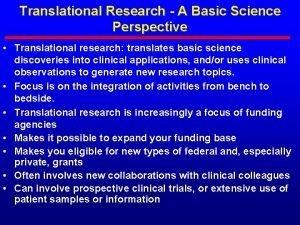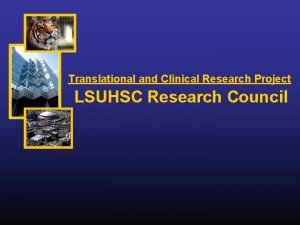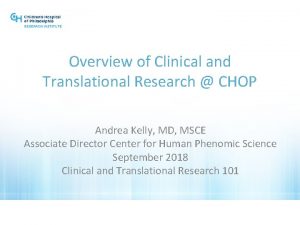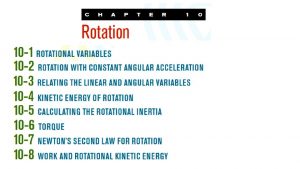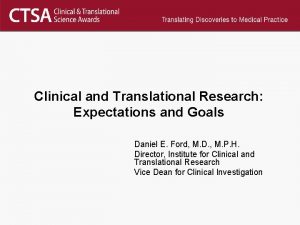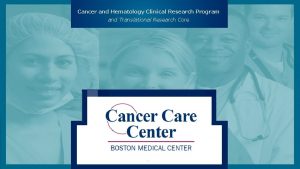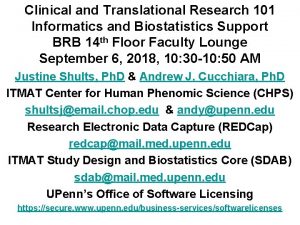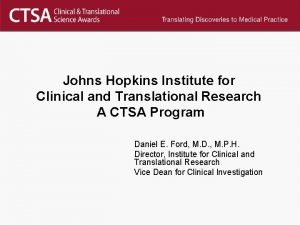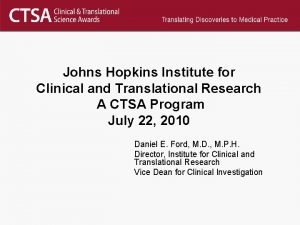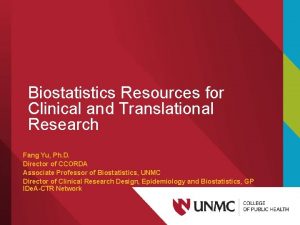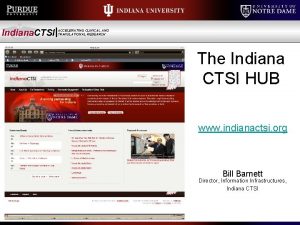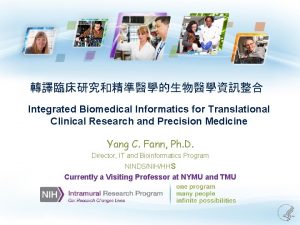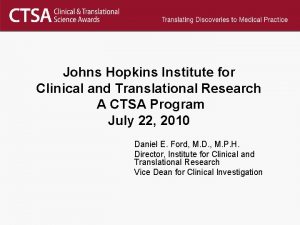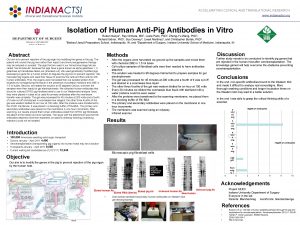Clinical and Translational Research Overview Emma A Meagher




















- Slides: 20

Clinical and Translational Research Overview Emma A. Meagher, MD Vice Dean for Clinical Research & Chief Clinical Research Officer

PSOM Education Portfolio MD MD-Ph. D Biomedical Postdoc Program Graduate Medical Education Continuing Medical Education Master’s & Certificates

Heterogeneous career endpoints • • • Master of Bioethics (MBE) Master of Biomedical Informatics (MBMI) Master of Health Care Innovation (MHCI) Master of Public Health (MPH) Master of Regulatory Affairs (MRA) Master of Science in Clinical Epidemiology (MSCE) Master of Science in Genetic Counseling (MSGC) Master of Science in Health Policy Research (MSHP) Master of Science in Medical Ethics (MSME) Master of Science in Medical Physics (MSMP) Master of Science in Regulatory Science (MSRS) Master of Science in Translational Research (MTR) • Research • Clinical Practice • Education • Innovation • Administration • Research Support • Pharma • Biotechnology • Finance/Business • Clinician • Administration • Employee Academia Private Practice Industry/ For Profit Sector Not for Profit Sector • Health Policy • Regulatory Agency • Advocacy • Government

The Evolution Research Landscape Definitionofofthe Clinical Research **The Learning Health Care System

Penn Engagement in Clinical & Translational Research is Broad & Deep

The Research Spectrum

The Shifting Interface of Academia and Healthcare Integrating the translation of discovery into medical education The Learning Health Care System • • • Large Data Academic Partnerships/Consortia Team Science of Healthcare Economics Science of Healthcare Operations on Outcomes

Career Planning - Academic Tracks • Academic Clinician • Clinician Educator • Research • Tenure

Essential Skills of the TR Investigator or Team • The ability to articulate a health need with the precision of a basic science hypothesis • The ability to conceptually design a translational study to address your question (e. g. new drug, device, diagnostic tool, etc. )

Opportunities to Pursue a Clinical and Translational Career at Penn

What does the Education Pathway look like? Medical School Residency & Subspecialty Training Research Training -Apprentice Model or Formalized Program Non-Research Training -MBA, JD, etc In parallel or in sequence?

Levels of Engagement for Translational Research Education Masters Programs Certificate Programs Introduction to Clinical and Translational Research

MTR 510: Intro to Clinical & Translational Research Course Director: Emma Meagher, MD Offered Fall Term, M/W, 4: 00 -5: 30 PM Open to nondegree students • Module 1: Research Methods & Protocol Development • Module 2: Regulatory Environment for Clinical Trials. Upon completion, students should have a strong foundation in the fundamentals of clinical research and should be able to apply contemporary research tools to clinically relevant areas of investigation.

Certificate in Clinical Research - Epidemiology • Requirements – Completion of 4 courses • 2 Core Courses • Introduction to Clinical Epidemiology and Biostatistics in Practice • 2 Electives • Database Management, Clinical Trials and Translational Research, Critical Appraisal of the Medical Literature, Practical Applications in Clinical Research Methods – Completion of 2 online Collaborative Institutional Training Initiative (CITI) modules • Two pathways: – Non-credit - only available to Penn – Credit - Staff and faculty or anyone external to Penn. • For More Information: https: //www. cceb. med. upenn. edu/certificate-programs ccebcert@pennmedicine. upenn. edu

Master of Science in Clinical Epidemiology • Primary objectives is to produce a cadre of skilled investigators trained to conduct epidemiology studies. • Designed to be completed in two to three years of full-time study (14 c. u. required) • Generally, first year students devote their time to the "core courses" and the writing of their thesis protocol • In the 2 nd and 3 rd years of study students complete electives and conduct their thesis projects. • General Inquiries: Jennifer Kuklinski, jkuklins@pennmedicine. upenn. edu • Admissions Inquiries: ceuapps@pennmedicine. upenn. edu • For more information: http: //www. cceb. med. upenn. edu/master-science-clinical-epidemiology-msce

ITMAT Certificate Program • • • In-depth training in Clinical and Translational Science Certificates in Translational, Entrepreneurial, and Regulatory Science Requirements – 4 c. u. of coursework, one-year engagement in CTR research project, and active mentorship – 2 core courses; 2 elective courses based on selected certificate • For more information and to apply: http: //www. itmat. upenn. edu/certificate/

Master of Science in Translational Research • Provide training in translational research by combining didactic and experiential learning in a structured degree program – Prepare students to think critically to pose and answer research questions – Provide instruction in grant and manuscript writing – Prepare students to execute research proposals – Prepare students to evaluate the translational impact of their research • Curriculum – 80% of time on the research project – Didactic course work, wet and/or dry lab based learning • Career development and mentoring – Team Mentoring Approach – Professional Development Core Career Development & Mentorship Research Project

MSTR Concentrations Biomedical Informatics: For students who are adopting informatics methodologies to develop and test their own hypotheses. Biomedical Informatics Entrepreneurial Science: For students who aim to navigate both business and academic environments as you conduct research and consider commercialization opportunities. Discovery Core Courses Entrepreneurial Science Discovery: For students who are connecting the basic science of disease with human medicine. Projects may be proof of concept in cell or animal models or human samples. Translational Therapeutics and Regulatory Science Translational Therapeutics: For students who are testing discoveries for clinical effect. Projects may be first in humans, phase 1, or assessing the safety, efficacy, quality, and performance of regulated products.

ITMAT Community Education • Research Mentor Training – To develop mentoring skills in Penn and CHOP research faculty • Junior Investigator Symposium – Late stage post docs/clinical fellows & early stage faculty at Penn and CHOP focused on successful career strategies for a career in CTS • Clinical and Translational Research 101 – To introduce new residents and fellows at Penn and CHOP to the CTS landscape on campus • Career development workshops with Pharma • CTS Professional Staff – Masters in Regulatory Affairs

From Reliance to Independence • Provide the training • Provide the funding • Provide the mentoring • Provide the infrastructure.
 Emma meagher
Emma meagher Caroline meagher
Caroline meagher Primary control vs secondary control
Primary control vs secondary control Symbol for angular acceleration
Symbol for angular acceleration Post translational and co translation
Post translational and co translation Analogy between linear and rotational motion
Analogy between linear and rotational motion Ap physics unit 7 mcq
Ap physics unit 7 mcq Translational equilibrium?
Translational equilibrium? Lj wei
Lj wei Translational kinetic energy
Translational kinetic energy Oscillatory motion examples
Oscillatory motion examples Translational kinetic energy
Translational kinetic energy Energy of ideal gas
Energy of ideal gas Translational motion definition
Translational motion definition Translational kinetic energy
Translational kinetic energy Translational vs rotational motion
Translational vs rotational motion Translational criminology
Translational criminology Rolling with slipping
Rolling with slipping Formula of mean free path
Formula of mean free path Rotational mechanical system examples
Rotational mechanical system examples Duke translational medicine institute
Duke translational medicine institute


